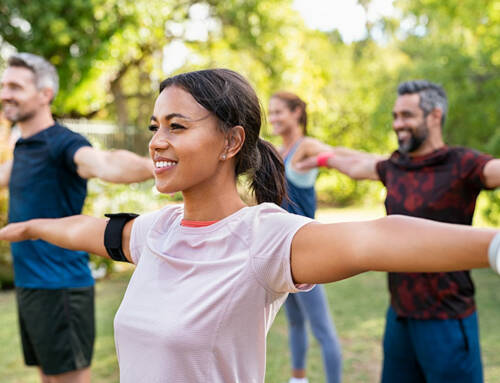Self-care, the active process of taking care of ourselves, is essential to our overall mental health and well-being. While it may be a concept we are aware of and try our best to do, it is not uncommon for our self-care to take a back seat to more ‘urgent’ issues. There is nothing quite like addressing a global pandemic to interrupt our self-care routines, right?! Life as we knew it changed over the last several months, seemingly overnight. If your self-care decreased along the way, you are not alone. Adapting our processes to accommodate a ‘new normal’ is not always easy.
Since the nation has gone on lock-down, many may feel as if their opportunities for self-care have been taken away. After all, vacations and events have been canceled. Fitness centers are closed, spas and salons cannot provide services. Opportunities for worship and fellowship have moved online, and it is not possible to meet-up at your local coffee shop to chat with a friend.
It might seem like there are very few options right now. It’s completely normal to feel a sense of loss, grief, sadness, and/or anger with this. But remember, the ‘best’ self-care is not always something you necessarily schedule, pay for, attend, or even leave your house for. Self-care simply means actively attending to and taking care of you (with some creative brain-storming due to current circumstances).
While it can be natural to shift our thinking to the roadblocks we face (our brain is designed to do this), the first step to positive self-care during this pandemic is to reassess self-care practices and routines. This involves taking an inventory of the activities and practices you still do have access to, options for alternatives, and an openness to experiment. It also involves assessing the multi-dimensional parts of yourself that need attention. Important areas to consider include the biological, psychological, social, and spiritual systems. Healthy self-care practices tend to include routines and activities that attend to all four systems. Here are some examples:
Biological
This means attending to your physical body and its needs for things like sleep/rest, food and hydration, movement, medication (if needed), medical needs, monitoring of any substance use, and personal hygiene. It is important that the structure and timing of our daily activities remain consistent and predictable – even during seasons of isolation, working from home, limited social outings, etc. Our physical bodies function the best when we are consistent.
Psychological
This means attending to your emotions, thoughts, and somatic body experiences (i.e. body sensations). It can be helpful to check-in with yourself throughout the day to see if you might need to ‘change the channel’ on unhelpful thoughts. This may involve taking time away from your computer, engaging in something that brings you joy and laughter or attending to something that feels calming (i.e. being in nature, being near water, a specific smell, etc.). It might mean offering yourself a compassionate statement such as, “This is difficult, and I am doing the best I can.” Other times, we might need to “just be” with our experience. It is also ok to feel like things are hard and to honor the part of yourself that feels this way.
Social
This means attending to your social needs and includes the balance of time spent between connecting with others and time spent alone. As humans, we greatly benefit from social connection, though we all have our own individual threshold for how much social time we need to feel fulfilled. Now that ‘social distancing’ is recommended, you may have to get creative in how you meet your social needs. Some options are meeting with others via video conferencing, gatherings in which the recommended space between you and others is available, and using multiple methods of communication (i.e., texting, emailing, writing letters, social media, phone calls, etc.). You may also develop practices that help you feel close to important people during times you cannot be near them physically. Some people find that having photos around them or watching home videos can be comforting.
Spiritual
This means attending to a part of yourself that aligns with what personally brings you a sense of meaning, purpose, and love. This might be engaging in activities that help you feel closer to your higher power, such as prayer, Bible study, or online worship. Maybe it is spending time outside in nature, taking time to reflect on your personal gratitudes, or any activity which helps you feel connected to something greater than yourself.
I hope you take a moment today to tune into each of these four dimensions and notice your individual needs for self-care. I encourage you to turn this noticing into a self-compassionate and caring action.
Take good care.
– Jessica Bleninger, PsyD, LP, Clinical Director of Adult Services
If you’re finding yourself in a place where you or a loved one need help, please reach out. We’re here to help in any way we can.





